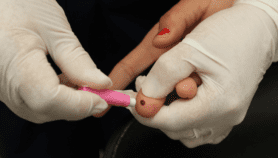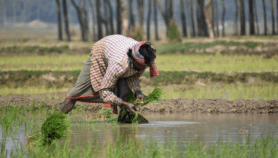Send to a friend
The details you provide on this page will not be used to send unsolicited email, and will not be sold to a 3rd party. See privacy policy.
Field trials of AIDS prevention methods are as essential as they are politically awkward, argues this Nature editorial.
Women urgently need more effective HIV prevention measures that they can control, the editorial says. Most new infections arise through heterosexual transmission, but women are often powerless to insist on condom use, the best prevention method.
Trials have been conducted on the effectiveness of women-initiated prevention methods, such as microbicides and diaphragms, and preventative drugs that can be used by both men and women.
Now there are concerns that the recent failure of some potential prevention methods will lead funders to pull out. But, argues the editorial, it is not unusual for development and testing to take a long time — researchers have not given up hope of a vaccine for HIV for example.
Developing effective prevention techniques — and delivering better those that are proven to work — requires a more thorough understanding of issues such as intimacy, cultural expectations and interpersonal relationships, the editorial says.
Work is needed in both development of new methods and communication with the communities involved to control the pandemic and help women stay healthy.













